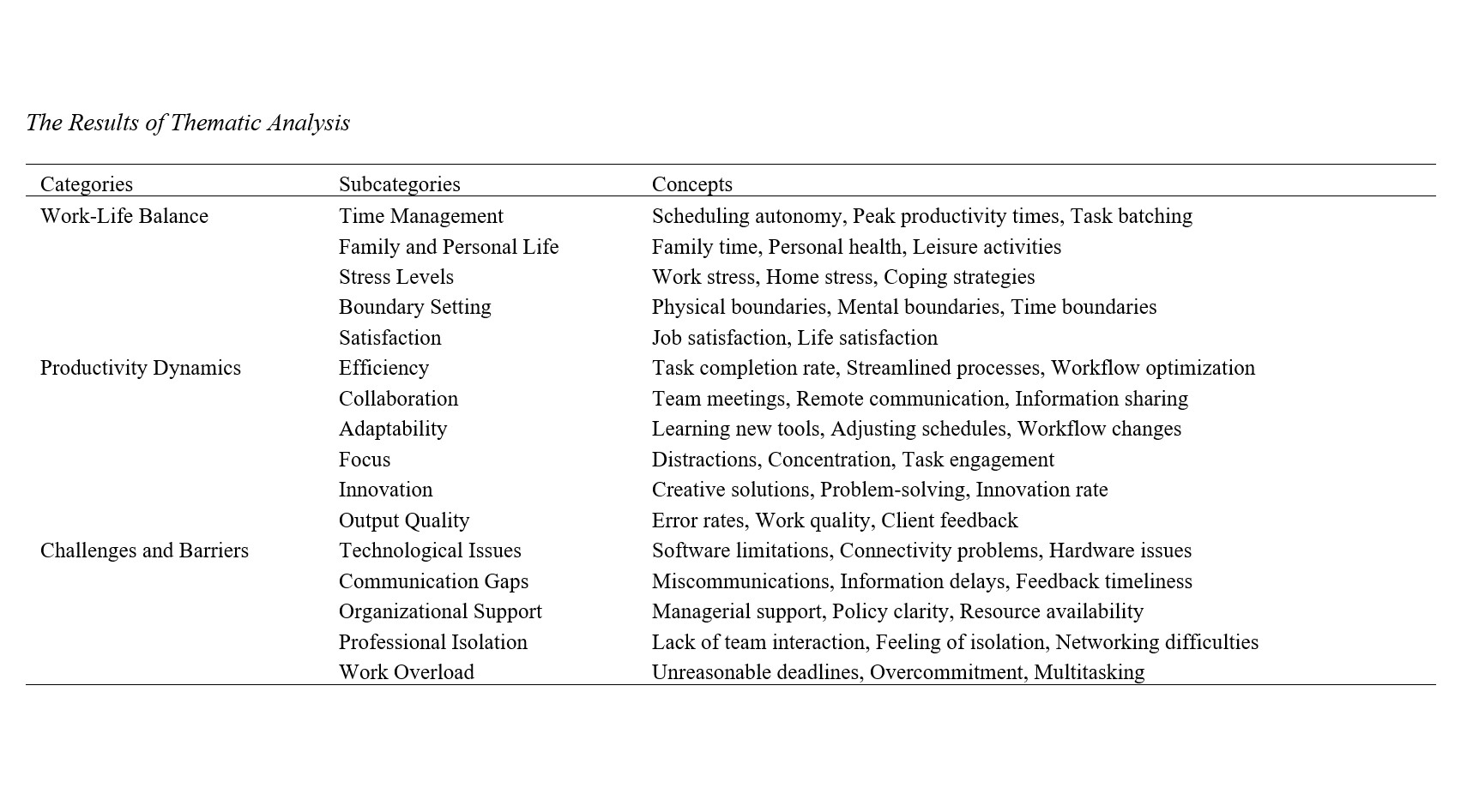Employee Experiences with Flexible Work Arrangements and Their Impact on Productivity
Keywords:
Flexible work arrangements, employee productivity, work-life balance, qualitative research, thematic analysis, organizational behaviorAbstract
The evolving nature of work-life dynamics has prompted increased adoption of flexible work arrangements (FWAs). This study investigates the impacts of FWAs on employee experiences and productivity, aiming to identify the benefits and challenges of such arrangements and to understand how they influence work-life balance and job satisfaction. A qualitative research design was employed, utilizing semi-structured interviews to collect data from 30 participants across various industries known for implementing FWAs. Participants were chosen through purposive sampling to ensure diversity in age, gender, job role, and experience. Theoretical saturation was achieved to ensure comprehensive data coverage. Data were analyzed using thematic analysis to identify themes, subthemes, and underlying concepts. Three main themes were identified: Work-Life Balance, Productivity Dynamics, and Challenges and Barriers. Work-Life Balance covered aspects such as time management, family and personal life integration, stress levels, boundary setting, and overall satisfaction. Productivity Dynamics highlighted efficiency, collaboration, adaptability, focus, innovation, and output quality. Challenges and Barriers included technological issues, communication gaps, organizational support, professional isolation, and work overload. FWAs offer significant potential benefits by enhancing work-life balance and productivity. However, their success and sustainability depend on addressing the associated challenges, such as communication difficulties and potential isolation. Effective implementation of FWAs requires tailored strategies that consider individual and organizational needs, emphasizing the need for supportive technologies and robust management practices.










